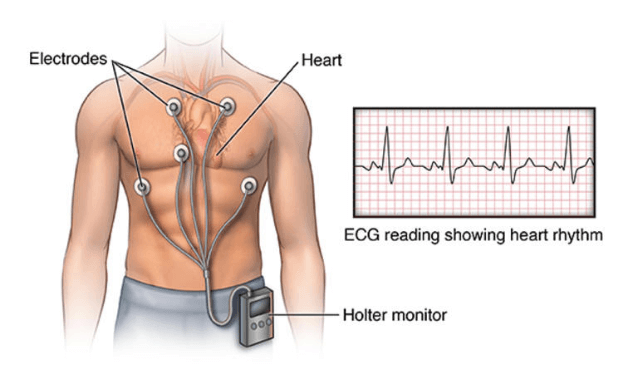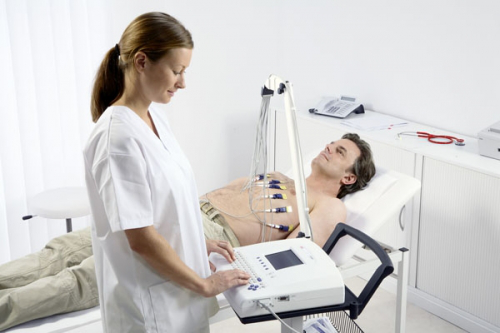When and Why You Need a Holter Checkup
Holter Checkup, sometimes also called ambulatory electrocardiography, is a continuous 24 hour monitoringthat helps record your heart’s rhythm and rate. The patient is made to wear aHolter monitor for a period of time ranging between 12 and 48 hours, while they go about their normal daily routine.
The Holter monitor is a battery-powered medical device that can be worn under one’s clothes, to measurethe heart’s activity, such as the rate and rhythm. This device has electrodes leading out exactly like it is in a regular electrocardiogram (EKG), but it has fewer number of leads. Apart from picking up your regular heart rate and rhythm, it can also sense and recordwhen you exhibit an irregular heartbeat or feel chest pains.
Therefore, your doctor may ask you to take up a Holter Checkup in Jaipur (or anywhere else depending on your city of residence) when they need more information about your heart’s functions. Moreover you might be asked to carry a Holter Monitor in the following instances –
- If you have symptoms of a heart problem including irregular heartbeat or arrhythmia and when you experience unexplained fainting.
- If you have a heart condition that may increase your risk of experiencing an abnormal heartbeat, your doctor may suggest a Holter checkup, even if you don’t have any direct symptoms of arrhythmia.
- An electrocardiogram is not able to detect the heart’s irregularity accurately sometimes, and that’s when your doctor may recommend that you wear a Holter monitor for a day or two.
- If your doctor suspects that you are at risk of future heart problems after a pre-existing/ genetic condition or a recent heart attack.
Signs of Heart Problem That Might Need a Holter Monitor Detection
- Fast, fluttering or pounding heartbeat
- Too slow, too fast, or otherwise irregular heartbeat
- Excessive tiredness, shortness of breath or dizziness
- Chest pain not caused by an exercise test
While wearing Holter monitor, you’ll be asked to keep a note of all your daily activities in a diary. Your doctor can compare the written data from that recorded by the Holter monitor, which can help diagnose your condition.If you experience any of the above mentioned symptoms, you might need to get a Holter Checkup in Jaipur. Theexpert team of cardiologists at the Jaipur Heart & Multispeciality Centre can help you determine heart problems and provide a course of action for its prevention.


